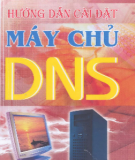Tài liệu Thư viện số
- Công nghệ thông tin (1283 )
- Toán học - Vật lý học (450 )
- Văn hóa - Giáo dục (420 )
- Điện - Điện tử - Viễn thông (482 )
- Tài chính - Kế toán (521 )
- Kinh tế - Quản lý (473 )
- Lý luận chính trị (454 )
- Ngoại Ngữ (250 )
- Nhà nước - Pháp luật (290 )
- Luận Văn - Đồ Án (397 )
- Giải Trí (191 )
- Y tế - Sức khỏe (400 )
- Tài liệu tham khảo khác (164 )
Danh mục TaiLieu.VN
- Mẫu Slide Powerpoint
- Luận Văn - Báo Cáo (344720)
- Kinh Doanh Marketing (65512)
- Kinh Tế - Quản Lý (48934)
- Tài Chính - Ngân Hàng (55898)
- Công Nghệ Thông Tin (142209)
- Tiếng Anh - Ngoại Ngữ (47066)
- Kỹ Thuật - Công Nghệ (134345)
- Khoa Học Tự Nhiên (107174)
- Khoa Học Xã Hội (82451)
- Văn Hoá - Nghệ Thuật (54408)
- Y Tế - Sức Khoẻ (173915)
- Nông - Lâm - Ngư (62504)
- Kỹ Năng Mềm (29016)
- Biểu Mẫu - Văn Bản (27610)
- Giải Trí - Thư Giãn (51994)
- Văn Bản Luật (198854)
- Tài Liệu Phổ Thông (402015)
- Trắc Nghiệm Online (213578)
- Trắc Nghiệm MBTI
- Trắc Nghiệm Holland
Tài liệu nổi bật
Kết quả 145-156 trong khoảng 222
-
Lecture Operating system concepts - Chapter 9: Memory management
In this chapter, we discuss various ways to manage memory. The memory- management algorithms vary from a primitive bare-machine approach to paging and segmentation strategies. Each approach has its own advantages and disadvantages. Selection of a memory-management method for a specific system depends on many factors, especially on the hardware design of the system. As we shall see, many algorithms require hardware support, leading many...
54 p itc 23/04/2016 254 1
-
Lecture Operating system concepts - Chapter 8: Deadlocks
Lecture Operating system concepts (Sixth ed) - Chapter 8: Deadlocks. After studying this chapter you will be able to develop a description of deadlocks, which prevent sets of concurrent processes from completing their tasks; to present a number of different methods for preventing or avoiding deadlocks in a computer system.
41 p itc 23/04/2016 186 1
-
Lecture Operating system concepts - Chapter 6: CPU scheduling
In chapter 4, we introduced threads to the process model. On operating systems that support them, it is kernel-level threads not processes that are in fact being scheduled by the operating system. However, the terms "process scheduling" and "thread scheduling" are often used interchangeably. In this chapter, we use process scheduling when discussing general scheduling concepts and thread scheduling to refer to thread-specific ideas.
33 p itc 23/04/2016 177 1
-
Lecture Operating system concepts - Chapter 5: Threads
The process model introduced in Chapter 4 assumed that a process was an executing program with a single thread of control. Many modern operating systems now provide features for a process to contain multiple threads of control. This chapter introduces many concepts associated with multithreaded computer systems and covers how to use Java to create and manipulate threads. We have found it especially useful to discuss how a Java thread maps to...
20 p itc 23/04/2016 183 1
-
Lecture Operating system concepts - Chapter 10: Virtual memory
Virtual memory can be a very interesting subject since it has so many different aspects: page faults, managing the backing store, page replacement, frame allocation, thrashing, page size. The objectives of this chapter are to explain these concepts and show how paging works.
55 p itc 23/04/2016 237 1
-
Lecture Operating system concepts - Chapter 14: Mass-storage systems
In this chapter, we begin a discussion of file systems at the lowest level: the structure of secondary storage. We first describe the physical structure of hard disks and magnetic tapes. We then describe disk-scheduling algorithms, which schedule the order of disk I/Os to maximize performance. Next, we discuss disk formatting and management of boot blocks, damaged blocks, and swap space. We conclude with an examination of the structure of...
44 p itc 23/04/2016 248 1
-
Lecture Operating system concepts - Chapter 13: I/O systems
The role of the operating system in computer I/O is to manage and control I/O operations and I/O devices. Although related topics appear in other chapters, here we bring together the pieces to paint a complete picture of I/O. First, we describe the basics of I/O hardware. Next, we discuss the I/O services provided by the operating system and the embodiment of these services in the application I/O interface. Then, we explain how the operating...
31 p itc 23/04/2016 267 1
-
Lecture Operating system concepts - Chapter 12: File system implementation
This chapter is primarily concerned with issues surrounding file storage and access on the most common secondary-storage medium, the disk. We explore ways to structure file use, to allocate disk space, to recover freed space, to track the locations of data, and to interface other parts of the operating system to secondary storage. Performance issues are considered throughout the chapter.
47 p itc 23/04/2016 292 1
-
Lecture Operating system concepts - Chapter 11: File-system interface
In this chapter, we consider the various aspects of files and the major directory structures. We also discuss the semantics of sharing files among multiple processes, users, and computers. Finally, we discuss ways to handle file protection, necessary when we have multiple users and we want to control who may access files and how files may be accessed.
30 p itc 23/04/2016 287 1
-
Lecture Operating system concepts - Chapter 15: Network structures
Lecture Operating system concepts (Sixth ed) - Chapter 15: Network structures. The main contents of this chapter include all of the following: Background, topology, network types, communication, communication protocol, robustness, design strategies.
32 p itc 23/04/2016 281 1
-
Lecture Operating system concepts - Chapter 17: Distributed coordination
Chapter 17 examines various mechanisms for process synchronization and communication, as well as methods for dealing with the deadlock problem, in a distributed environment. In addition, since a distributed system may suffer from a variety of failures that are not encountered in a centralized system, we also discuss here the issue of failure in a distributed system.
49 p itc 23/04/2016 266 1
-
Lecture Operating system concepts - Chapter 18: Protection
The various processes in an operating system must be protected from one another’s activities. For that purpose, various mechanisms exist that can be used to ensure that the files, memory segments, CPU, and other resources can be operated on by only those processes that have gained proper authorization from the operating system. In this chapter, we examine the problem of protection in great detail and develop a unifying model for implementing...
19 p itc 23/04/2016 254 1
Đăng nhập
Bộ sưu tập nổi bật























